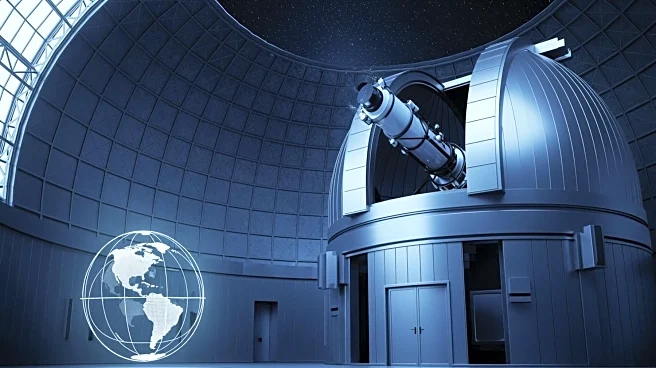What's Happening?
A bipartisan group of U.S. senators has proposed the establishment of a National Institute for Space Research to maintain American leadership in space exploration following the retirement of the International
Space Station (ISS) in 2030. The initiative, part of the Space RACE Act, aims to coordinate U.S. microgravity research in low Earth orbit using next-generation space platforms. The proposal is driven by concerns over China's growing influence in space, particularly through its Tiangong space station, which could attract multinational research efforts. The senators argue that the institute would support public-private partnerships and economic development, bridging government and commercial sector interests. The proposal requires congressional approval to move forward.
Why It's Important?
The establishment of a National Institute for Space Research is seen as crucial for maintaining U.S. competitiveness in the global space race, especially as China expands its space capabilities. By coordinating research efforts and supporting small businesses, the institute could lower barriers to entry into space research and development, countering China's ability to build soft power through space-based partnerships. The initiative also aims to bolster America's geopolitical influence and leadership in the emerging space economy. With NASA facing significant budget cuts, the proposal underscores the need for strategic investments to ensure the U.S. does not lose ground in space exploration.
What's Next?
The proposed Space RACE Act requires congressional approval, and its passage would mark a significant step in reshaping U.S. space policy. If approved, the institute would coordinate research on private space stations that will succeed the ISS. The initiative could lead to increased collaboration between government and commercial sectors, fostering innovation and economic growth. As the U.S. and China both aim to land astronauts on the moon before 2030, the institute could play a pivotal role in ensuring American leadership in space exploration.











